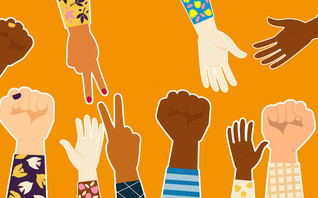
July 16, 2020, noon
“On this World Population Day, let us act to safeguard sexual and reproductive health care, protect the health and rights of women and girls, and end gender-based violence. The pandemic has made our jobs much harder, but we must prevail.”(1)
António Guterres
Secretary-General of the United Nations
Every year since 1989, 11 July has been marked as World Population Day by the United Nations. The main aim of this day is a to address the ever-growing human population on earth, and the issues related to this population growth. According to the United Nations Population Fund (UNFPA), this year’s theme is “Putting the brakes on COVID-19: How to safeguard the health and rights of women and girls now”(2).
The COVID-19 pandemic is the largest global public health crisis in a century. This ongoing pandemic has been affect to public health, economies, politics, and of course the human rights. Moreover, it has led to the postponement and cancellation of sporting, religious, political, and cultural events. And, schools, universities, and colleges have been closed either on a nationwide or local basis in many countries, affecting approximately 98.5 percent of the world's student population.
The misinformation about the virus on social media and mass media have been negative effects on people. Specifically, there have been increasing in cases of xenophobia and discrimination against to Chinese people or people who are coming from areas with high infection rates.
But there is one more big result of the pandemic; it has been blocked off to reach to life-saving sexual and reproductive health services too. Recent UNFPA research highlights that if" the lockdown continues for 6 months with major disruptions to health services, then 47 million women in low- and middle-income countries may not be able to access modern contraceptives resulting in 7 million unintended pregnancies"(3). The research of the UNFPA not limited to these, the report shows us that too: "the disruption of UNFPA’s programmes on the ground could result in 2 million cases of female genital mutilation and 13 million child marriages between 2020 and 2030 that could have been averted"(4). If the pandemic is continue, this lockdown situation can create the worst inequalities for women and girls, and of course deepening discrimination against other marginalized groups.
Because of that, this year, The World Population Day on July 11, aims to raise awareness about the sexual and reproductive health needs and vulnerabilities of women and girls during the pandemic. "The World Population Day, highlights with the theme this year that, sexual and reproductive health and rights is a significant public health issue that demands urgent and sustained attention and investment"(5).
Sources:
Please click to read that "Coronavirus Disease (COVID-19) Pandemic UNFPA Global Response Plan" https://www.unfpa.org/resources/coronavirus-disease-covid-19-pandemic-unfpa-global-response-plan
https://www.unfpa.org/events/world-population-day
https://www.un.org/en/observances/world-population-day
https://www.unfpa.org/news/putting-brakes-covid-19-safeguarding-health-and-rights-women-and-girls

